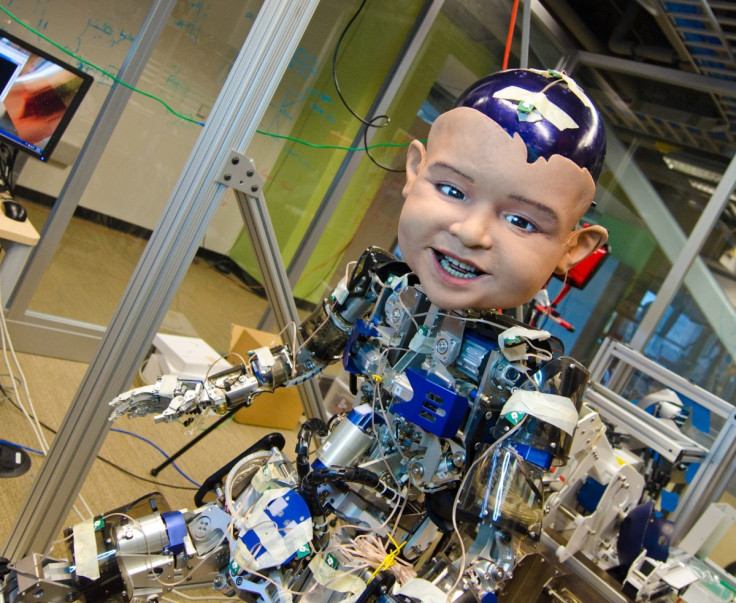Creepy robot toddler shows babies smile to make adults smile back [video]
Babies smile in order to make those they are interacting with smile back – but do through sophisticated timing so they smile as little as possible. Using an extremely creepy robot toddler, researchers were able to show that babies do not just smile randomly, but do so to illicit a positive response from the adult they are interacting with.
Scientists from the University of California, San Diego, were building on earlier research that looked at 13 pairs of mothers and babies smiling at one another. The team had thought the babies were – if anything – smiling because the mother was smiling.
However, after running the data through algorithms, they found the opposite was true, with babies initiating smiles. This was true in 11 of the 13 babies that showed clear signs of intentional smiling. The team notes, however, infants are unlikely to be conscious of doing this.
Paul Ruvolo, one of the researchers, said: "We thought either the babies had no goal or it was about mutual smiling. We are not claiming that a particular cognitive mechanism, for instance conscious deliberation, is responsible for the observed behaviours. Our methods are agnostic to this question."

To further test their findings, they used a humanoid toddler robot – called Diego San - and programmed it to behave like the babies in the previous study. They then had it interact with students. Findings, published in the journal PLOS One, showed the robot got the students to smile as much as possible, with the students behaving like the mothers.
Additionally, the team showed the robot used sophisticated timing techniques to maximise the number of smiles while smiling as little as possible themselves. Study co-author Dan Messinger said: "What makes our study unique is that previous approaches to studying infant-parent interaction essentially describe patterns. But we couldn't say what the mother or infant is trying to obtain in the interaction. Here we find that infants have their own goals in the interaction, even before four months of age."
Javier Movellan, another study author, added: "If you've ever interacted with babies, you suspect that they're up to something when they're smiling. They're not just smiling randomly."
© Copyright IBTimes 2025. All rights reserved.






















